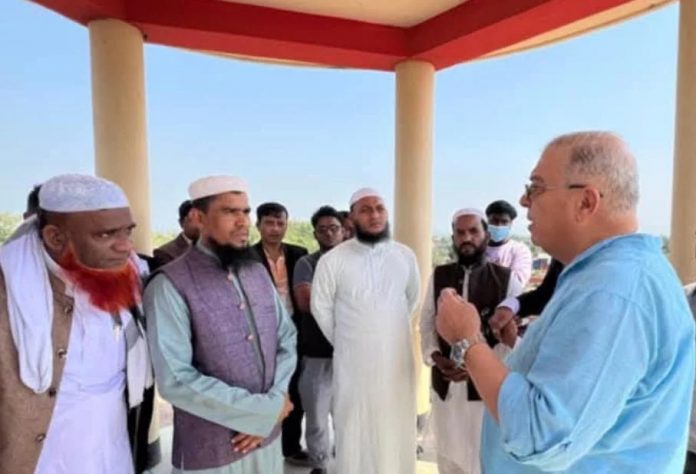The Organization of Islamic Cooperation (OIC) Special Envoy on Myanmar Ibrahim Khairat visited Bangladesh last month to meet with its interim government in Dhaka and Rohingya living in refugee camps in Cox’s Bazar to discuss plans for repatriation to Myanmar.
“The OIC, the U.N., and regional powers must push for humanitarian protections while also recognizing that Rohingya should not be forced into taking sides in a war that has nothing to do with their struggle for rights and recognition,” Shafiur Rahman, an independent journalist covering the Rohingya, told DVB.
The OIC, founded in 1969, is an intergovernmental body that promotes cooperation among Islamic countries and protects Muslim interests, such as the plight of the Rohingya in Bangladesh.
Over one million Rohingya live in refugee camps after fleeing violence perpetrated by Myanmar’s military against civilians in northern Arakan State in 2017. It was described as a “textbook example” of ethnic cleansing by the U.N. and a genocide by the U.S.
The OIC has supported The Gambia’s case against Myanmar for the alleged crime of genocide against the Rohingya at the International Court of Justice (ICJ) in December 2019. Several countries including Canada, Denmark, France, Germany, the Netherlands, the U.K., and the Maldives have joined the case against Myanmar.
“The OIC cannot afford to compromise its standing by engaging with figures aligned with the very forces oppressing the Rohingya. It cannot support a genocide case at the ICJ while simultaneously hobnobbing with Myanmar’s military proxies in Bangladesh,” said Rahman, referring to photos Khairat shared on social media during his visit to Cox’s Bazar on Feb. 18.
Rahman reported in the Dhaka Tribune that Khairat was seen in the photos with individuals believed to have links to the regime in Myanmar, which seized power after the 2021 military coup, and the Rohingya Solidarity Organisation (RSO), which is an armed group operating along the Myanmar-Bangladesh border.
“The recent meeting in Bangladesh undermines both the credibility of the OIC and the integrity of those who facilitated it,” added Rahman.
The OIC has yet to clarify the meeting’s purpose. Reuters reported that the RSO fought alongside Myanmar’s military against the Arakan Army (AA) in Arakan State last year.
The AA seized the regime’s Military Operations Command (MOC) 15 in Maungdaw Township of northern Arakan on Dec. 8. Its commander Thurein Tun was detained along with regime troops, which included about 80 Rohingya, according to the AA.
Human Rights Watch reported in April that the military had kidnapped and forcibly conscripted over 1,000 Rohingya males from various parts of Arakan since it enforced its military conscription law in February 2024.
The Rohingya have been denied citizenship in Myanmar under the 1982 Citizenship Law and don’t have freedom of movement in the country.
During his visit to Bangladesh, Khairat met with Foreign Secretary Ambassador Md Jashim Uddin at the Ministry of Foreign Affairs in Dhaka on Feb. 16.
He told the interim government that the OIC would play a role in what is being called the “U.N. high-level conference on the situation of Rohingya Muslims and other minorities in Myanmar,” scheduled for later this year.
This high-level meeting on the Rohingya has been touted by the Bangladesh interim government Chief Advisor Muhammad Yunus as a plan for a sustainable resolution to the crisis. Dhaka has requested the inclusion of Rohingya repatriation to Myanmar in the OIC Ten-Year Plan of Action (2026-2035).
Khairat is a former diplomat from Egypt.



